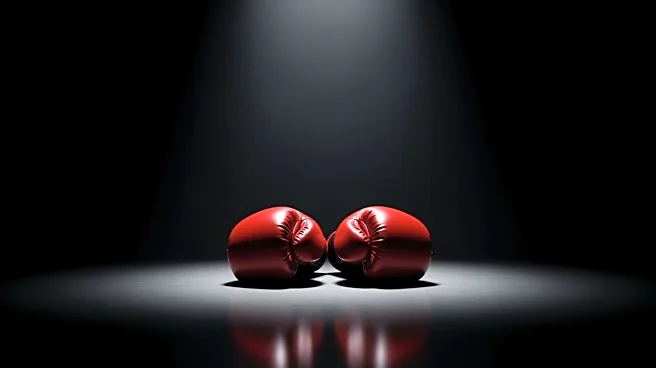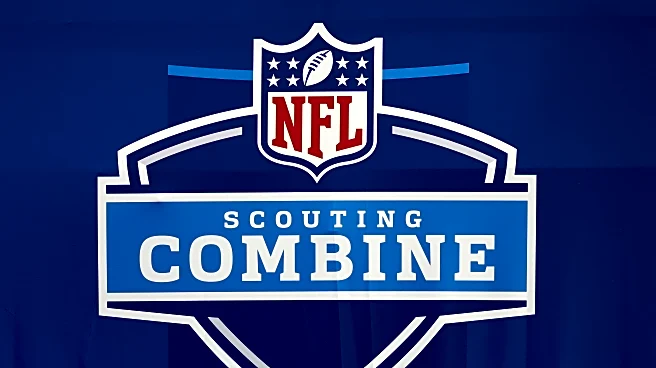What's Happening?
Boxing legend Ricky Hatton's death has been officially ruled as suicide by a coroner's court. Hatton, who was 46 years old, was found unresponsive at his home in Hyde, Greater Manchester, on September
14. The Stockport Coroner's Court revealed that the provisional cause of death was hanging. Hatton was last seen by his family on September 12 and appeared to be in good spirits. Known as 'The Hitman' and 'The People's Champion,' Hatton held multiple championship titles at light-welterweight and one at welterweight. He was recognized as the 2005 Fighter of the Year by several media outlets.
Why It's Important?
The ruling of Ricky Hatton's death as suicide highlights the ongoing issue of mental health struggles among athletes. Hatton was a celebrated figure in the boxing world, and his passing underscores the pressures faced by sports personalities. This event may prompt discussions on the importance of mental health support for athletes, who often deal with intense public scrutiny and personal challenges. The boxing community and sports organizations might need to reassess their support systems to prevent similar tragedies.
What's Next?
The coroner's court has adjourned the hearing until March 20, which may lead to further investigations or discussions about mental health initiatives within the sports community. Stakeholders, including sports organizations and mental health advocates, might push for enhanced support systems for athletes. The boxing community could also engage in tributes or memorials to honor Hatton's legacy while raising awareness about mental health issues.
Beyond the Headlines
Hatton's death could spark broader conversations about the stigma surrounding mental health in sports. It may lead to increased advocacy for mental health awareness and support, encouraging athletes to seek help without fear of judgment. This incident might also influence policy changes within sports organizations to prioritize mental health as part of athlete welfare.










